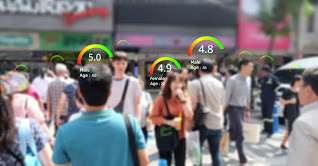As AI systems get additional omnipresent, the requirement to manage their use becomes additional apparent. we've already seen however systems like face recognition area unit typically unreliable at the simplest and biased at the worst . Or however governments will misuse AI to hit individual rights. the european Union is currently considering implementing formal regulation on AI's use.
On weekday, the european Commission planned laws which may limit and guide however firms, organizations, and government agencies use AI systems. If approved, it's going to be the first formal legislation to regulate AI usage. The global organization says the principles area unit necessary to safeguard "the elementary rights of people and businesses." The legal framework would contains four levels of regulation.
The first tier would be AI systems deemed "unacceptable risk." These would be algorithms thought of a "clear threat to safety, livelihoods, and rights of individuals ." The law would outright ban applications like China's social rating system or any others designed to vary human behavior.
The second tier consists of AI technology thought of "high risk." The EC's definition of speculative applications is broad, covering an honest vary of code, variety of that is already in use. social control code that uses AI which is able to interfere with human rights area unit about to be strictly controlled. face recognition is one example. In fact, all remote identification systems fall into this class.
These systems area unit about to be extremely regulated, requiring high-quality datasets for coaching, activity logs to trace back results, elaborate documentation, and "appropriate human oversight," among different things. the european Union would forbid the use of most of these applications publically areas. However, the principles would have concessions for matters of national security.
The third level is "limited risk" AIs. These chiefly contains chatbots or personal assistants like Google's Duplex. These systems should offer tier of transparency vital enough that they're going to be known as non-human. The end-user should be allowed to form a call whether or not or not he or she interacts with the AI.
Finally, there area unit programs thought of "minimal risk." These would be AI code that poses very little to no hurt to human safety or freedoms. as an example , email filtering algorithms or AI used in video games would be exempt from regulation.
Enforcement measures would contains fines among the vary of six p.c of a company's world sales. However, it might take years for love or cash to travel into impact as European member states discussion and hammer out the little print .




